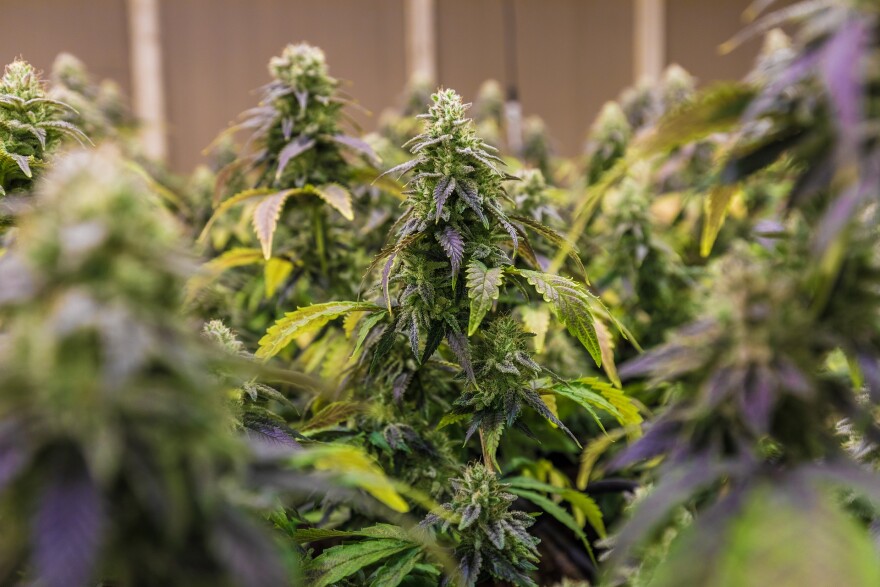November’s election saw a handful of Texas cities voting to decriminalize small amounts of marijuana. But statewide, lawmakers have been less enthusiastic about passing cannabis-related laws, with the most recent one being 2019’s industrial hemp law.
As attitudes around marijuana become more favorable among voters in Texas, reform advocates say it’s high time for lawmakers to revisit cannabis laws in the legislative session.
Texas NORML executive director Jax James spoke with the Texas Standard about what cannabis bills have been proposed so far, and how “state vs. local” attitudes on marijuana laws can complicate things. Listen to the story above or read the transcript below.
This transcript has been edited lightly for clarity:
Texas Standard: You know, it wasn’t that long ago that a lot of mainstream news outlets didn’t even want to touch the issue of marijuana, much less speak with someone from NORML. I mean, that’s how much the Overton Window, as they say, has changed in the past decade or so, do you think?
Jax James: Absolutely. I’ve been doing this since 2005 in Texas. And in my tenure, I’ve done hundreds upon hundreds of interviews. And I have seen the climate change from legislators not wanting to talk to patients and advocates at the Capitol to this being a very important issue – with dozens of bills being filed regarding changing and improving the laws we have here.
Do you think Texas is warming up to cannabis reform and how much? I mean, when I say “Texas,” I’m really talking about the politicians – the folks at the Capitol in particular – who will be voting on some of these laws.
Well, we’ve seen the House of Representatives pass multiple bills with supermajorities out of their chamber and send it to the Senate. We’ve seen less movement in the Senate, but we have seen appetite, especially for medical cannabis and hemp legislation. And so really, I think that the legislators and the governor, they all want to advance this issue. The pinch point has been truly the lieutenant governor. And so we have to make sure that we address the concerns that he has so that we can ensure that common sense policy can be enacted this session.
Well, tell us a little bit about some of the major marijuana-related bills we’ve seen filed so far this session.
Well, so far, we have seen several cannabis-related bills having to do with improving our medical program. Three have been filed – two in the Senate, one in the House. But we do anticipate another bill coming from Rep. [Stephanie] Klick sometime before the filing deadline. Rep. Klick is a nurse and has authored every bill that has passed to improve the Texas Compassionate Use program. In addition to that, we have seen, oh, about a dozen bills so far that have to do with penalty reduction. By far the one that is the most comprehensive is HB 218 from Rep. Joe Moody. We have also seen some efforts for legalization, both with a bill out of the Senate and a joint resolution out of the Senate. And so we will see what happens with those, as well.
How many of these bills that you have seen are similar to laws that have been brought up in previous legislative sessions, and how much do you think has changed?
Well, you know, really, the bills that have had the most traction have been Rep. Moody’s bills. He has continued to work with the governor’s office to refine and fine tune the legislation so that it will be amenable for passage. So I’m very hopeful that we’ll see HB 218 come out this time. It had passed in two separate forms last time out of the House. And so I do think that that will definitely be the wagon to hitch your horse to, if you will.
So that sounds like what you’re most optimistic about, having a chance of passing, am I incorrect?
No, you’re totally correct. I do think that has the best likelihood of passing. There is some other great legislation that has been authored. But, you know, Rep. Moody has really been carrying the water on this issue and doing a lot of diligent work on it. And so I do think he has set himself up to have a bill that is the most amenable to the most legislators.
We’ve seen cities in Texas, especially some of the larger cities, be more open to the idea of some kind of reform. And that’s run counter to some of the objectives of conservative leaders. You mentioned the lieutenant governor in particular. I’m curious, are what cities doing helping your work there at the legislature or is it hindering it? Because we know that there’s a friction between cities and some some state lawmakers right now.
Well, you know, that’s a good question. And I think both of those opinions have good reasoning behind them. But I do want to give a little bit of texture for the listeners. In Texas, we cannot collect signatures to put something on the ballot at the state level, which is where our cannabis laws are regulated. And so different cities and municipalities have used their discretion and the leniency that they have within their city charters to try to depenalize, reduce in priority and do these other efforts because they just cannot continue to spend the funding or the law enforcement time on this type of policy.
And so, you know, I think it’s great to be able to look at San Marcos and Denton and Austin and see huge supermajorities of Texans have supported this policy. That’s a great message to send. But also, you know, it can become complicated with who has the right to really govern this law in our state.
H/T: www.kut.org



